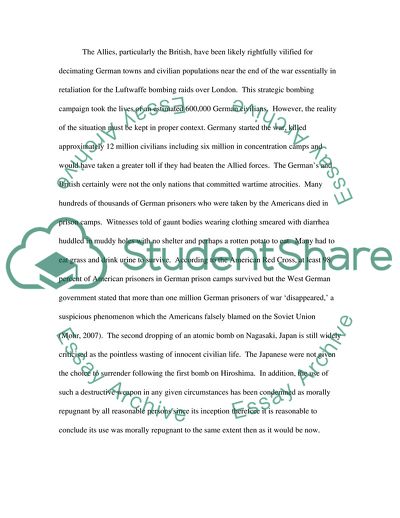Cite this document
(How just was the area bombing of derman cities during world war 2 Essay, n.d.)
How just was the area bombing of derman cities during world war 2 Essay. https://studentshare.org/history/1715520-how-just-was-the-area-bombing-of-derman-cities-during-world-war-2
How just was the area bombing of derman cities during world war 2 Essay. https://studentshare.org/history/1715520-how-just-was-the-area-bombing-of-derman-cities-during-world-war-2
(How Just Was the Area Bombing of Derman Cities During World War 2 Essay)
How Just Was the Area Bombing of Derman Cities During World War 2 Essay. https://studentshare.org/history/1715520-how-just-was-the-area-bombing-of-derman-cities-during-world-war-2.
How Just Was the Area Bombing of Derman Cities During World War 2 Essay. https://studentshare.org/history/1715520-how-just-was-the-area-bombing-of-derman-cities-during-world-war-2.
“How Just Was the Area Bombing of Derman Cities During World War 2 Essay”. https://studentshare.org/history/1715520-how-just-was-the-area-bombing-of-derman-cities-during-world-war-2.


